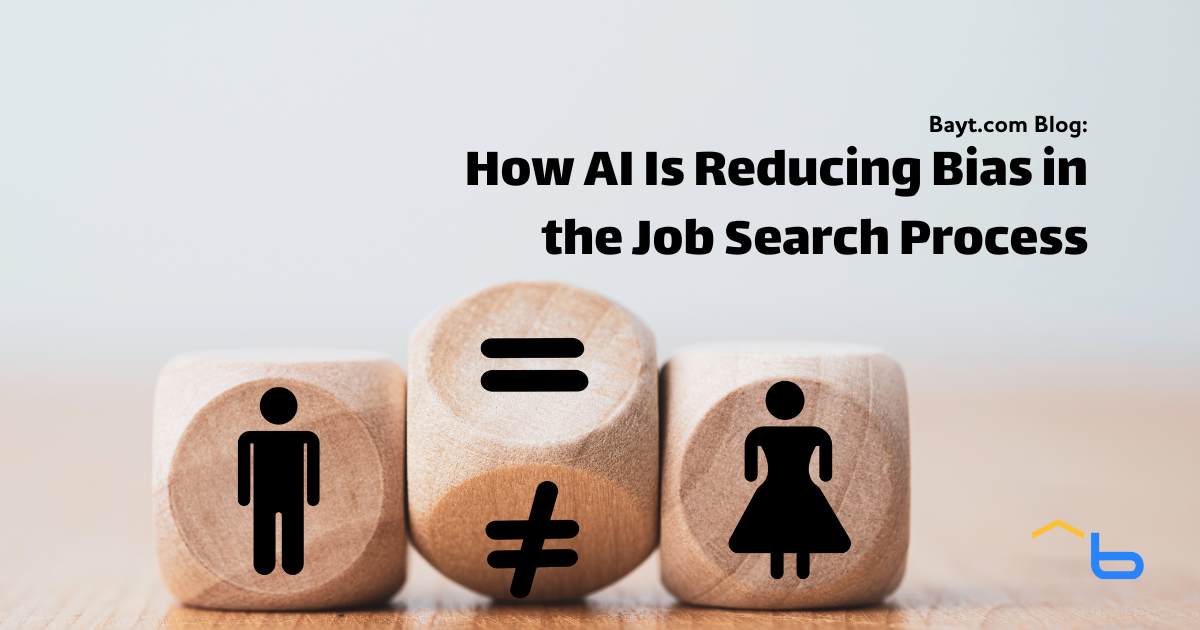
Many professionals are concerned about the potential for bias—whether unconscious or systemic—in hiring decisions when it comes to job searching. Fortunately, the rise of artificial intelligence (AI) is revolutionizing the recruitment process, helping to create a more level playing field for job seekers.
If you're a job seeker in the MENA region, India, or Pakistan, understanding how AI is reshaping hiring can empower you to navigate your career with confidence. Let’s explore how AI reduces bias and how it can work in your favor.
Bias in hiring refers to unfair preferences or prejudices that may influence hiring decisions. These biases can stem from factors like gender, age, ethnicity, or even the school someone attended. While some biases are intentional, most are unconscious, making them even harder to address.
AI plays a key role in reducing bias by analyzing candidates objectively and focusing solely on qualifications and skills. Here are the ways AI helps:
AI tools can anonymize candidate details such as names, photos, and gender—during the initial screening process. This ensures that recruiters focus purely on qualifications and experience, minimizing the impact of unconscious bias.
AI-powered platforms often evaluate candidates using skill-based tests, emphasizing their abilities rather than their backgrounds. For example, coding tests for IT roles or language proficiency exams for customer service positions provide objective measures of suitability.
Platforms like Bayt.com use AI to match candidates with jobs based on their skills, experience, and career goals. This minimizes subjective judgment and ensures that candidates are considered for roles that truly align with their capabilities.
AI helps employers craft neutral job descriptions by flagging potentially biased language. This ensures that postings appeal to a diverse range of candidates and encourage more inclusive applications.
AI algorithms are designed to learn and improve over time. They can analyze hiring patterns, identify inconsistencies, and adjust processes to promote fairness.
For job seekers in MENA, India, and Pakistan, AI’s role in reducing bias means better opportunities and a fairer shot at landing your dream job. Here’s how you can benefit:
With AI prioritizing skills and qualifications, your achievements take center stage, rather than factors like age or gender.
AI tools match you with jobs you might not have considered but are well-suited for, widening your career prospects.
AI streamlines recruitment by quickly sorting through applications and shortlisting the most qualified candidates, reducing waiting times.
AI-powered platforms analyze your profile to suggest jobs that align with your career goals, saving you time and effort in your job search.
AI can help you stand out, but you need to play your part too. Here’s how:
AI systems often rely on keywords to match candidates with jobs. Tailor your CV to include relevant industry terms and skills listed in job descriptions.
List your technical and soft skills clearly on your profile. AI thrives on detailed information to make accurate job matches.
Use job search platforms that integrate AI features, like Bayt.com, to maximize your visibility to employers.
Some platforms offer skill tests or certifications that AI tools consider when shortlisting candidates. Use these features to strengthen your profile.
By removing human biases, AI ensures that job seekers are evaluated fairly and opportunities are based on merit. For job seekers in MENA, India, and Pakistan, this is a promising development that levels the playing field in competitive job markets.
Looking for a fair shot at your dream job? Bayt.com uses AI-powered tools to connect you with top employers across the region. Update your profile today and unlock new opportunities!